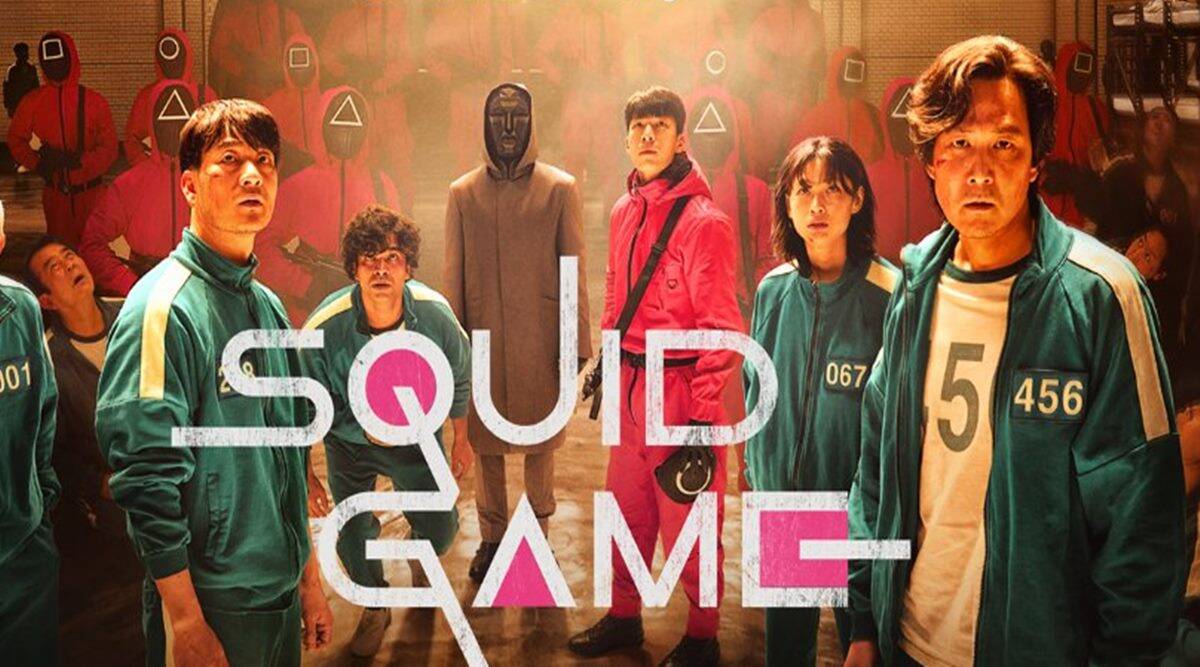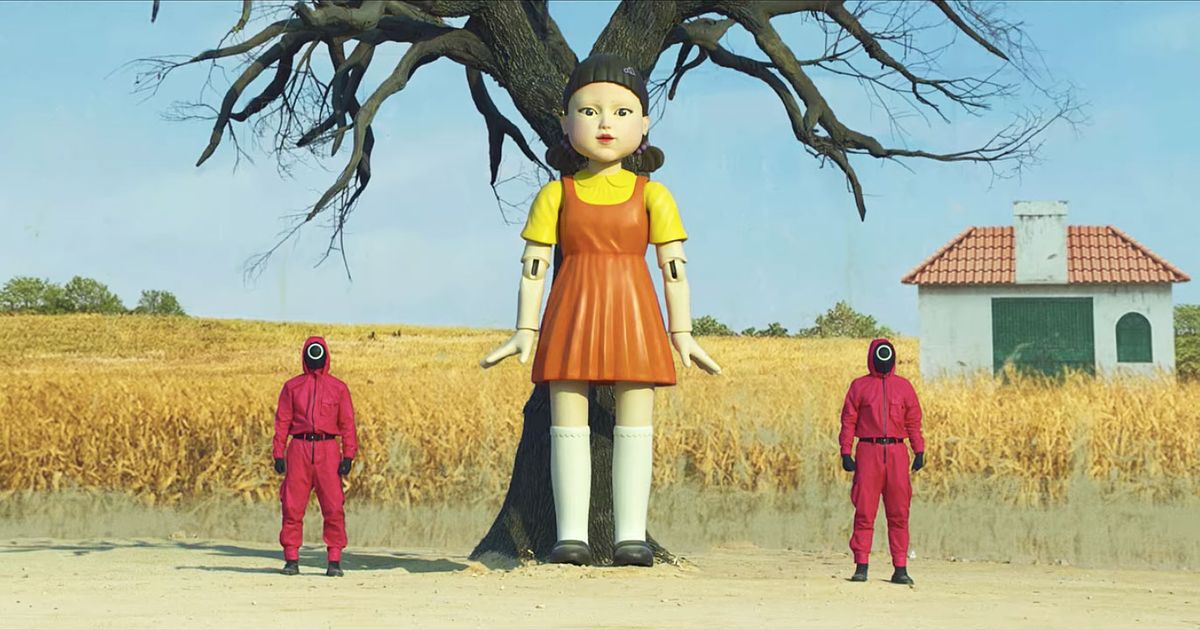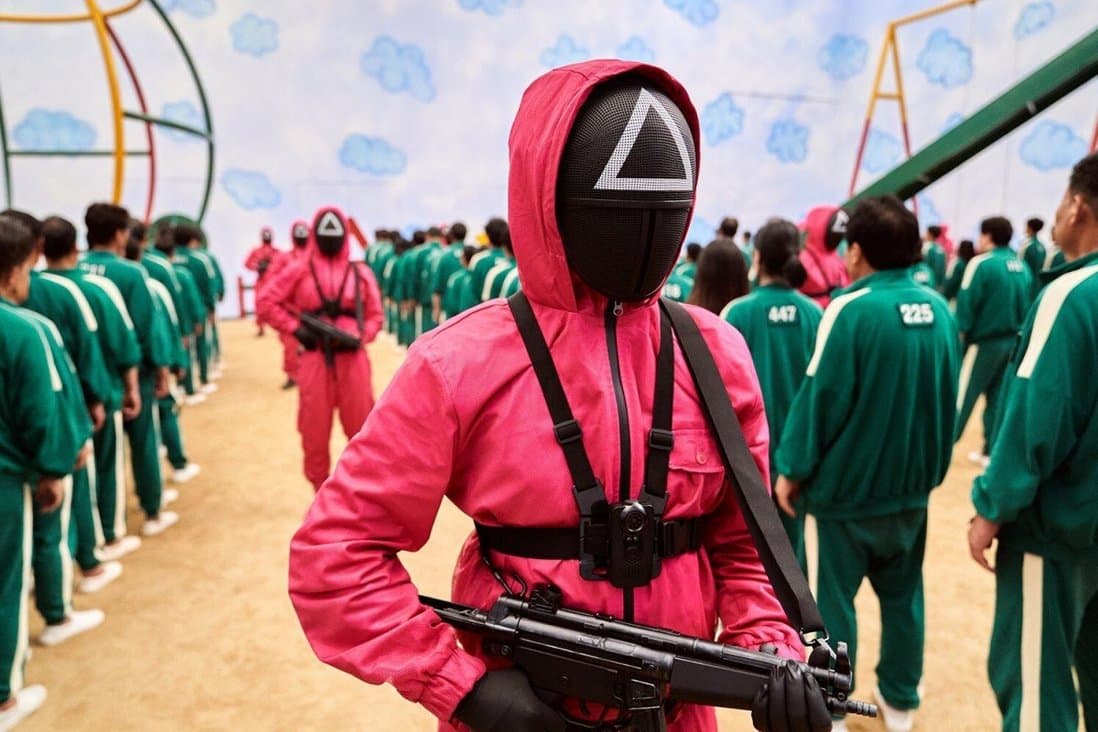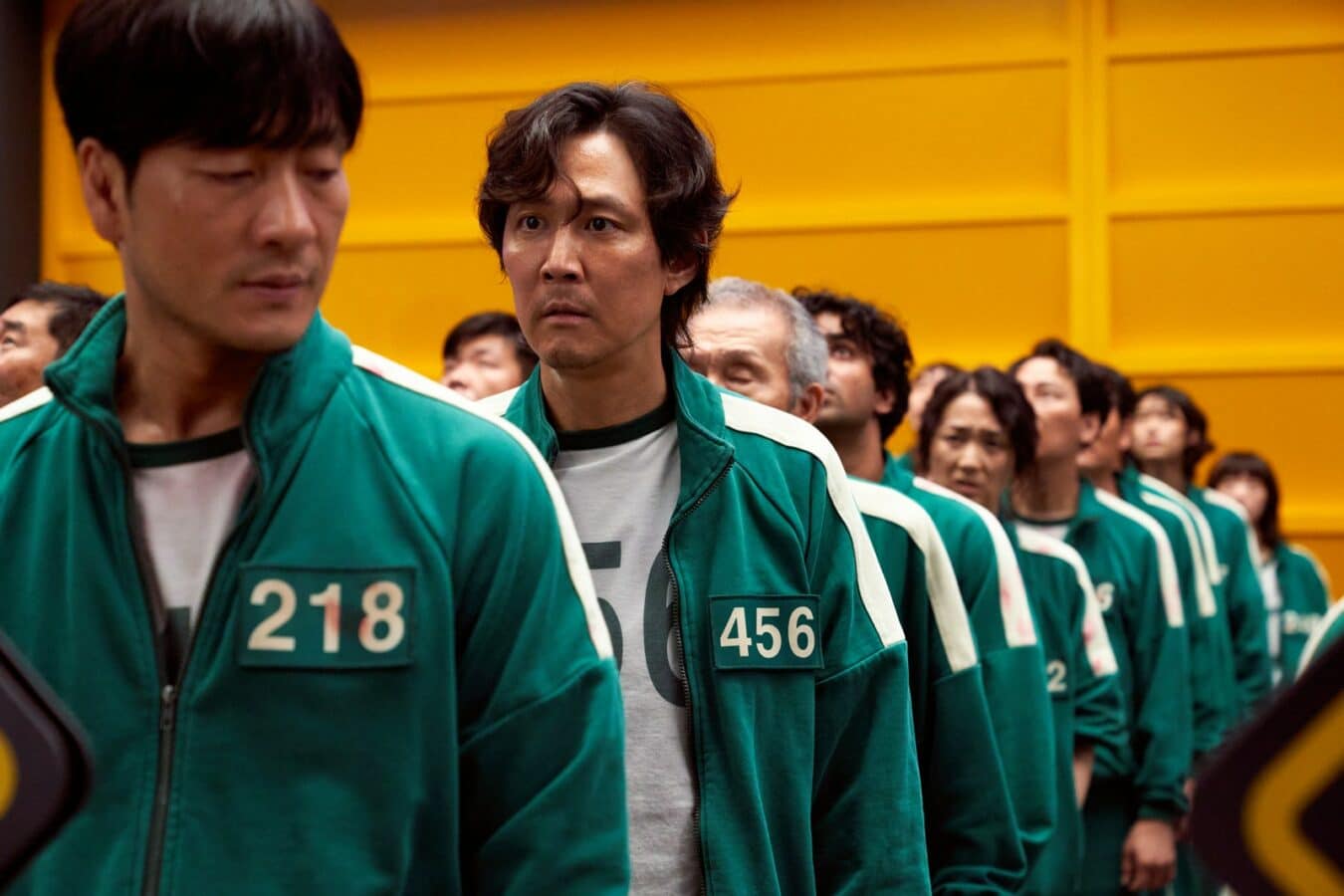Lessons From Squid Game on Human Psychology
Last Updated on July 1, 2024 by [email protected]

Tags: human psychology, lessons, Squid Game, motivation
Warning: Spoilers ahead!
By now, most of us have watched the latest drama series, Squid Game, by Netflix. It is a South Korean fictional drama in which 456 players were transported to an isolated island to play children’s games. Though these players were from different walks of life, they were all in debt.
The winner would walk home with ₩ 45.6 billion (S$ 52 million) while losers are executed.
Celebrated as Netflix’s biggest debut hit, the insights it provides into human behaviour continue to contribute to its growing popularity. Here are five valuable lessons we can take away from Squid Game:
At the start of Red Light, Green Light, everyone shuffled forwards apprehensively. When Player 324 was shot, his sudden death sent shock waves to the rest of the players who realised the gravity of the situation and that losing meant death. They panicked and fled towards the exit, only to be gunned down. Dozens were eliminated.

According to psychologist Daniel Goleman, this phenomenon is called the amygdala hijack. It is a situation when we overreact to something or someone due to intense emotion. When we are in that state, our amygdala instructs us to switch to survival mode and our priority is to seek safety. In this mode, our breathing becomes quick and shallow, and adrenaline increases our heart rates and activates the release of glucose into our bloodstream from the liver. Adrenaline also causes the blood vessels in our limbs’ muscles to dilate and obstruct the digestive and immune systems.
All these happen because our brain is preparing us to fight, flee (flight) or freeze.
The amygdala hijack explains why the players went into a frenzy. Meanwhile, the show’s protagonist, Seong Gi-hun, was so overwhelmed by the horrific scene that he froze and could not move. He had to be encouraged by his childhood friend, Sang-woo, who urged him to cross the finish line before the countdown timer reaches zero.
In life, we may experience this amygdala hijack when issues of the past, our present stressors, anxiety and worries of the uncertain future trigger us. What we can do is to focus on the present and what we can control.
In Red Light Green Light, the players could only control how they think and respond. When Sang-woo nudged Gi-hun to get up and start moving, it shifted Gi-hun’s focus towards completing the game and not the horrific scene around him. Sang-woo’s words helped Gi-hun transform his fear into motivation which helped Gi-hun to finish the race.
One of the lessons from Squid Game here is that we are in control of our thoughts and actions. We can learn to be anchored in the present, take the first step to sit with our emotion and externalise it by saying the emotion aloud or naming the emotion. Sitting with our emotions helps to build our distress tolerance, and the next time we are triggered, we may feel less of the feelings or tolerate the situation better.
Most of the time, we tend to suppress our emotions or ignore them. However, through externalising our feelings, we lessen their power over our lives, and we can then identify ways to transform the emotion we are experiencing.
We would also encourage you to talk it out with the person you have in mind. By doing so, not only can you release some of these stressors, but you are also building social connections and these connections can help build resilience in life.
During the show, it was evident that many players did not trust one another and adopted the approach “every man for himself.” However, we see a high level of trust that was nurtured within Gi-hun’s team.
Trust is an important part of human relationships and it is also a positive emotion that brings people together. Joshua Freedman (2019), an expert on emotional intelligence and Chief Executive Officer of Six Seconds, shared four components of trust that we can learn to develop.
The trust forged within Gi-hun’s team was not by accident. We witness how different team members exhibited the four components of trust that set a strong foundation for the team. It is noteworthy that Gi-hun formed his team through the relational approach, where he gathered players who wanted to support one another.
First, he demonstrated care and warmth to his teammates, and made efforts to connect with them. This relates to Fredrickson’s Broaden-and-Build theory which postulates that positive emotions can have a broaden-and-build effect. Positive emotions expand our thoughts and behaviour to explore problems in novel and positive ways, make social connections, and build resources. Other teammates seemed to have been influenced by Gi-hun too. For instance, we see San-byeok beginning to open up to her team.
Second, throughout the games, the team demonstrated their commitment to one another. During the tug-of-war, it was evident that their team was disadvantaged due to the physically-weaker team members. Instead of turning their backs on one another, they stayed together and trusted one another to carry out their strategy.
Third, despite the ongoing betrayals, the team also stayed true to the alliance that they had formed. The challenges they faced together further strengthened the trust between them.
Lastly, each member offered whatever strengths they had to the team. In tug-of-war, the team followed Il-nam’s strategy as they were convinced that he knew the winning formula. Similarly, Ali was appointed to be the last man to anchor the team as they recognised his attributes.
The high level of trust and bonds formed between the team was evident in how they desperately tried to find a way to game the system such that all could live, and grieved whenever they lost a team member.
In contrast, Deok-soo’s team was formed through a utility approach; only players who were physically fit and strong were chosen. Without any attempts to build trust, the foundation of this team was weak.
This was reflected in how they were quick to turn on one another. For example, when Deok-soo turned his back on Mi-nyeo the day after she helped him during the Dalgona game, and how they were quick to disband once things headed south.
The four components of trust also apply to teams and groups that we are part of at work or in school.
If there is no trust within the team, notice how quickly tension can arise during a conflict, and how it takes a longer time to resolve differences. Fear creeps in when there is a lack of trust.
On the flip side, if some time is spent nurturing positive relationships and trust within the team, you may notice the team working more harmoniously, and conflicts may be resolved quicker when team members recognise that they are working towards a common goal. Trust is an emotion that drives people and people drive productivity and performance.
Who are your allies in life? Are you able to differentiate the Ally, Dictator and Victim in your life? In order to do so, we need to learn to recognise what these individuals do or say.

Dictators take power away and move forward at the expense of others. Often, they use pronouns such as “I” and “You” when they communicate with others. For example, they would say, “You need to listen to me or else I will punish you.” In Squid Game, Deok-soo played the role of a dictator. He used his physical strength and appearance to intimidate others.
On the other hand, victims give power away and are often stuck in difficult circumstances. They rely on others for strength to move forward. Often you would hear them say, “I can’t do it,” or “I am not good enough.” Similarly, they use the pronoun “I” often in their conversations with people. Han Mi-nyeo portrayed herself as the victim in the show and tried latching onto different groups to survive.
However, her behaviour caused her to lose favour and she was eventually ostracised by the rest of the players. Interestingly, during the Bridge game, it seemed that she tried to regain her power by taking Deok-soo with her as they plunged to their deaths.
Allies use power for others and themselves and move forward together. You will often hear them use the pronoun “we.” For example, “We can do it!”, “Let’s work on this together.” We hear Gi-hun and Ali use these pronouns the most often.
It was also heartening to see Sae-byeok positively influenced by her team, when she assumed the role of an ally during the Bridge Game and shared the correct sequence of tiles to step on.
If you identify yourself as a victim, we encourage you to reach out to allies. These people could be your loved ones, friends or mental health professionals. You can regain the power of your life by first choosing to love yourself and taking steps to do things within your control.
We can also learn to become better allies for one another. Equip yourself with resources and toolkits to support each other.
To find out how you can better extend care a loved one, give this article a read.
As the show progressed, we see how Sang-woo was motivated to win all the money to pay back the debt caused by his failed investments. He seemed willing to do anything to survive. In fact, his actions got progressively more brazen and brutal as he inched towards the finishing line.
Sang-woo avoided alliances with players that he deemed weak and also hid valuable information about the games from players who were not in his team. As the games went on, we witness Sang-woo traverse down a slippery slope. He started out with small, self-justified deceptions before his actions and behaviours snowballed into bigger indiscretions, eventually causing Ali’s death and killing Sae-byeok.
Though his extrinsic motivation helped him survive the games, he was evidently unhappy and thoroughly worn out. In the end, he chose to commit suicide after a fierce battle with Gi-hun. Perhaps, he realised that the benefits of winning the prize money were overshadowed by the gravity of his actions. He may not be able to live with himself after all.
On the other end, Gi-hun was intrinsically motivated. He was driven by his values and commitments rather than the external situation.
Even in life-and-death situations, he still showed care towards Il-nam, knowing full well it meant being at a huge disadvantage.
On the night before the final round, the contrast between Gi-hun and Sang-woo grew even more apparent. Gi-hun arguably had many reasons to kill Sang-woo. Unlike Sang-woo who killed for the sake of winning, Gi-hun seemed to be driven by grief, hurt and anger that Sang-woo had sabotaged the lives of his comrades.
Fortunately, Sae-byeok stopped Gi-hun, knowing that he was acting out of character. As Gi-hun was strongly grounded by his values and principles, this seemingly small gesture by Sae-byeok was enough to bring him back on track and withdraw the knife.
In the end, though winning the match was a mere few steps away, Gi-hun still stuck to his values. He was willing to forfeit the prize if it meant that Sang-woo and he could go home safely. How many of us would be able to do the same?

What can we learn from Sang-woo and Gi-hun? Intrinsic motivation helps us to connect with people, build a sense of belonging and give us a sense of fulfilment while extrinsic motivation pushes us towards specific goals that we want to achieve.
Working solely on intrinsic motivation, however, can backfire if there are no specific goals to reach, whereas working solely on extrinsic motivation can push one to resort to actions where the means justify the ends, for the sake of the reward. It is thus important to strike a balance between them.
What motivates you in life? Think about the intrinsic and extrinsic motivations that you have. Are you living your life based on your values? Take time to reconnect with yourself and live a purposeful life.
Find your inner Gi-hun.
What brings you happiness? Is it money, career accomplishments, forging strong relationships or helping others in need? In this show, players were driven by the possibility of winning the prize money. They believed that money would solve their problems and bring them the happiness that they sought. On the other hand, the VIPs made bets on who would win, deriving joy from the thrill and intensity of the games as the players battled it out. Similarly, Il-nam had all the money in the world but still chose to join in the game as he was seeking some thrill and happiness in his life.
According to various studies, we often have the misconception that having a good job, money, relationships and material goods bring us happiness. However, how much is enough? Will we truly be happy when we achieve these?
Lyubomirsky (2008) wrote that our salary goals rise whenever we get a pay rise. In relationships, we also adapt to marriage and our happiness returns to baseline after a few years (Lucas et al., 2003). Our definition of what is enough becomes a shifting goal post that we can never seem to reach.
Based on research by Lyubomirsky (2005), engaging in random acts of kindness is one of many ways you can intentionally make an effort to become happier. Oxytocin, also known as the love hormone, increases when you engage in acts of kindness or are a recipient of it. Oxytocin helps to decrease blood pressure, improve our health, and boost self-esteem and optimism.
In the last episode, after Il-nam revealed to Gi-hun that he was the mastermind behind the games, he made a bet with Gi-hun that no one will step forward to help the homeless man across the street. Right at the stroke of midnight, Il-nam was proven wrong when a passerby enlisted the help of a police officer to assist the homeless man. This seemed to remind Gi-hun that there was still kindness in the world and people can still come through for you.
At times, we can be consumed by uncertainties about the unknown and the future that seem beyond our control. These can include worries about our relationships and careers. However, it is necessary for us to take time to re-evaluate what we are chasing after and reflect if achieving these would bring us the happiness that we are looking for.
In our day-to-day lives, happiness can also be achieved in the seemingly small gestures and acts of kindness that we can do for others. What is something that you can do for someone today?
All in all, with its compelling storyline, underlying themes, artistic direction and interesting dynamics between the characters, it is no wonder that Squid Game shot to fame, becoming the Number 1 show on Netflix in more than 80 countries. Besides the thrill from the survival series, the life lessons from Squid Game are definitely worth further exploration.
Squid Game is a South Korean drama where 456 debt-ridden players compete in deadly children’s games for a ₩45.6 billion (S$52 million) prize.
The lessons one can learn from this drama include:

Freedman, J. (2019). Requesting Trust: 5 Practical Steps to Repair and Increase Trust. Retrieved from https://www.6seconds.org/2015/01/20/requesting-trust/.
Lucas, R. E., Clark, A. E, Georgellis, Y., & Diener, E. (2003). Reexamining Adaptation and the Set Point Model of Happiness: Reactions to Changes in Marital Status. Journal of Personality and Social Psychology, 84(3), 527-539. Retrieved from https://www.apa.org/pubs/journals/releases/psp-843527.pdf.
Lyubomirsky, S. (2005). Pursuing happiness: The architecture of sustainable change. Review of General Psychology, 9(2), 111.
Lyubomirsky, S. (2008). The How of Happiness: A New Approach to Getting the Life You Want. Penguin Books.